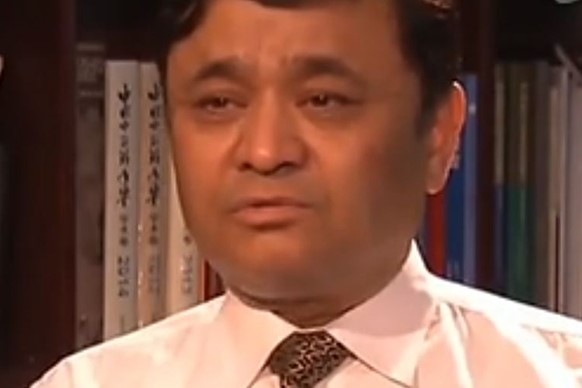PRESS RELEASE: WUC Calls Attention to the Continued Detention of Prominent Uyghur Professionals

Press Release – For immediate release
16 January 2018
Contact: World Uyghur Congress www.uyghurcongress.org
0049 (0) 89 5432 1999 or [email protected]

The World Uyghur Congress remains gravely concerned over the detention of prominent Uyghur physician and academic, Halmurat Ghopur, who was reportedly arrested in November 2017 and taken to an unknown location on alleged “acts against the state.” Ghopur’s arrest comes at a time of particular uncertainty and anxiety over the Chinese government’s escalating campaign rounding up Uyghurs not adhering to increasingly narrow and acceptable forms of behaviour from the Communist Party.
Ghopur, president of the Department of Inspection and Supervision of the Xinjiang Food and Drug Administration, was reportedly taken from his office in Urumqi by police, along with his computer. Radio Free Asia reported that Ghopur was in contact with one of his students studying abroad – which has been enough for police to detain Uyghurs in the past. His current whereabouts are not known.
His arrest also echoes that of Ilham Tohti – the prominent Uyghur academic who was arrested from his home 4 years ago this month and subsequently sentenced to life in prison for alleged separatism. The detention and trial of Tohti was widely reported in international media, but the same cannot likely be said about Dr. Ghopur, whose case has elicited very little response thus far.
It was recently reported that the four wealthiest Uyghurs in Kashgar were jailed in May totaling 42 years in prison for alleged “religious extremism”. The arrests come on the heels of the detention of untold numbers of Uyghurs as well many more who have been sent to “re-education” camps over the last year, where they are subjected to propaganda promoting Chinese identity.
Over the last decade, many Uyghur academics, journalists, writers and web administrators have faced harsh censure from Chinese authorities in an attempt to stifle dissent or the transmission of information to the general public. Some of those cases can be found below, many of whom have been arrested and sentenced on unclear charges:
- Adil Rishit, a Uyghur website administrator and administrator at the Uyghur Autonomous Region’s Department of Education, was arrested in 2016 along with Omerjan Hesen Bozqir, who also contributed to the website.
- Ekber Eset, founder of the Uyghur website “Bagdax” – which aimed at protecting the Uyghur language – was arrested in 2016.
- Tunyaz Osman, a Uyghur writer and legal researcher, and vice secretary at Aksu Prefecture’s Political and Legal Committee, was arrested in 2016.
- Tursunjan Muhemmet Marshal, former director of the Uyghur website “Misranim”, was arrested in 2016.
- Ablimit Ghoja’Abdulla Uyghur, a Uyghur writer, was arrested in 2014 and imprisoned from six to eight years.
- Abdurazaq Sayim, a member of the Xinjiang Social Sciences Academy’s Party Committee since 2003 was arrested in 2010 and sentenced to life in prison.
- Nureli Obul, and Nijat Azat were all sentenced in 2010 to a total of 13 years for “endangering state security”.
- Gheyret Niyaz, a popular Uyghur journalist, was sentenced to 15 years for “endangering state security” in 2010
- Gulmira Imin, who published poetry and short stories online was sentenced in 2009 to life in prison for “splittism, leaking state secrets, and organizing an illegal demonstration.”
Over the last year, however, we have witnessed a clear intensification in terms of the justification provided by the Chinese government for arrest and sentencing. Today, basic expression of Uyghur identity and the conditions for Uyghurs on the ground in East Turkestan has been criminalised. Prominent Uyghur community members and potential leaders have been increasingly targeted, likely as a means of discouraging collective action.
Actions like these and others sees the Chinese government entering into a new stage of paranoia, particularly with regards to Uyghurs who maintain connections with family and friends abroad. China has also arrested large groups of Kazakhs, likely in an attempt to hamper affinities between the largely-Muslim populations.
We therefore call on the international community to call for the release of the hundreds or more political prisoners who continue to languish in prison, just as Nobel Peace Prize laureate Liu Xiaobo did until he died in July 2017. We must not allow for the normalisation of the Chinese government’s truly brutal response to the mildest of dissent.
The Chinese government now has the choice to either heed the advice of those with the best interests of both the country and their own people in mind, or to continue down a regressive the regressive path that sees such conversations as an unacceptable irritant.

